Budapest Walking Tour with the Magyar Horde
The third stop on our honeymoon itinerary was the breathtaking city of Budapest. Often touted as one of the most beautiful cities in Europe, Budapest is a feast for all the senses with an overabundance in culture, a great nightlife scene, and warm people.
* Founded in 895AD by the Seven Chieftains of the Magyars, Budapest is linguistically and culturally different from the rest of Europe, who can trace their lineage to either the Romance-speaking (Latin), Germanic, or Slavic people.
* It seems that almost every corner of Budapest has a statue or work of art erected in it. Here's a statue of Andras Hadik, a Hungarian nobleman and Field Marshall of the Habsburg Army, who captured the Prussian capital of Berlin during the Seven Years War.
* Our tour service that day was conducted by Discover Budapest, an awesome service run by a group of young Hungarians full of enthusiasm and zeal for their beautiful city.
* Apart from walking tours, they also offer bicycle and segway tours.
* Our tour began at the Hungarian State Opera House, designed by Miklos Ybl and located in Central Budapest. Funded by the Austro-Hungarian Emperor Franz Joseph, the Opera House was so grand that it rivaled the majesty of the Opera House in Vienna, capital of the Empire. The Emperor was said to have been so upset upon seeing it during the opening, that he stormed out causing a minor scandal to the delight of the Hungarian people.
* Due to its picturesque beauty and lower wages when compared to other cities in the West, Budapest has often been used as a substitute for other cities in various movies and music videos. In fact, a lot of movies set in Paris, London, and Russia, have actually been Budapest instead.
* Among the movies shot here are Madonna's Evita (as Buenos Aires), Die Hard V (as Moscow), World War Z, Steven Spielberg's Munich (as Rome, Paris and London), Mission Impossible Ghost Protocol, Transporter 3, and music videos like Katy Perry's Firework.
* A lady with an extremely hip fashion sense taking the bike tour.
* Getting around Budapest is convenient with the Budapest Metro, the second oldest underground railway system in the world. First of course, is the London Tube.
* Hosok Tere, or in English: Heroes' Square, is one of Budapest's major squares and contains the aforementioned monument to the Seven Magyar Chieftains.
* Me, my woman, and the Magyar horde!
* Surrounding the Magyar Chieftains are sculptures showcasing the various Hungarian Kings of great importance. Among these are Stephen I (leftmost, converted himself and the entire Kingdom of Hungary to Catholicism), Andrew II (third from right, led a Crusade), and Bela IV (second from right, rebuilt the country after the Mongol invasion).
* On the other side of the square, there used to stand statues of the various Emperors of the Habsburg Dynasty, rulers of the Austro-Hungarian Empire, but all of these were damaged during World War II and replaced instead by other Hungarian National Heroes.
* Directly across the square is the neo-classical Hall of Art of Budapest, showcasing contemporary works of art.
* And across that, is the Museum of Fine Arts which showcases more classical works of art including Egyptian, Greek, and Roman antiquities.
* Directly behind Heroes' Square is Vajdahunyad Castle, built to showcase different eras of Castle Architectural Design including Romanesque, Gothic, Renaissance, Baroque, and Transylvanian.
* This Orthodox Cathedral looking building is actually the changing area for the humongous City Park Ice Rink, the largest and oldest ice rink in Europe. Them Hungarians love this place!
* Spectacular Baroque-styled building in the Vajdahunyad Castle Complex.
* No wonder movie production crews love it here! This could easily pass for a building in Paris or Rome.
* Creepy and extremely lifelike! We stared at this for quite some time, waiting for it to do something.
* My favorite architectural style in Vajdahunyad was this Transylvanian one. Looks like a home Dracula could call his own.
* A short walk through the park brings us to the Szechenyi Medicinal Bath Complex. Budapest has over 80 geothermal springs, and this one is the city's most popular and grand.
* The Hungarians love their Bath culture! Apart from the medicinal and therapeutic benefits of the baths itself, the Complex is a great place to socialize, gossip, or just play a game of chess.
* Going back to the city center, we stop by the huge Basilica of St. Stephen. Stephen I, who was the first King of Hungary, was responsible for converting the entire kingdom to Catholicism. Today, his right hand is stored in the reliquary.
* When visiting Budapest, make sure to try its signature dish: the strudel! Our guide took us to this restaurant frequented by all the locals.
* Fancy looking restroom sink!
* The strudel is a layered pastry with a sweet filling. Popular throughout the former members of the Austro-Hungarian Empire, the strudel is similar to the Turkish baklava.
* This odd statue of a girl (fairy?) cleaning (?) a gentleman's ear made me chuckle.
* Check out that epic cloak! I wish we could wear something like that here but alas our country is just too humid.


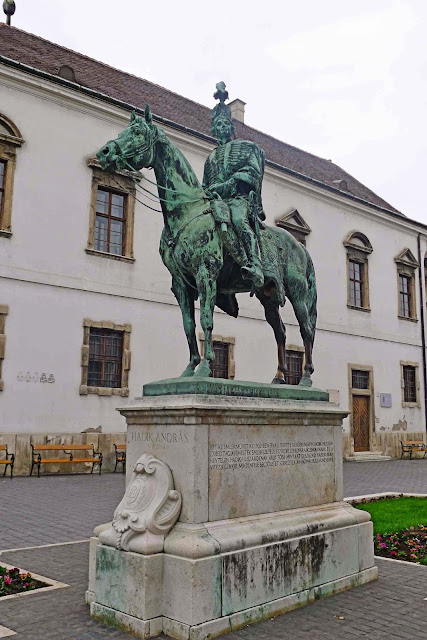

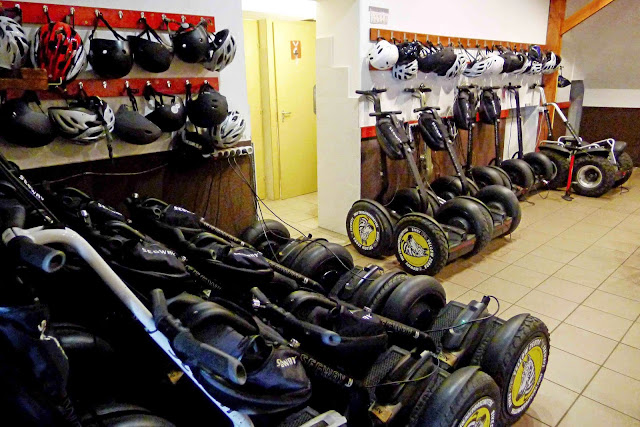
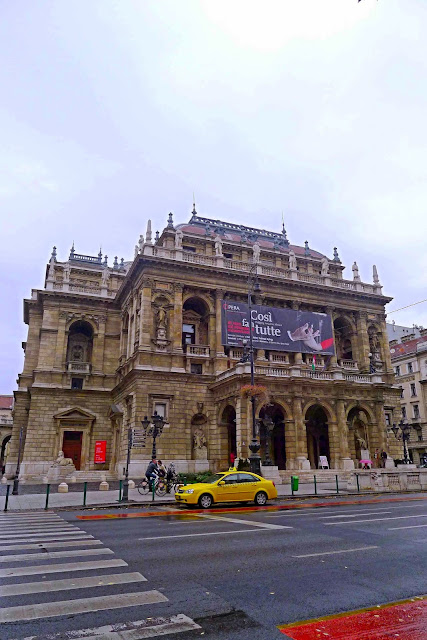
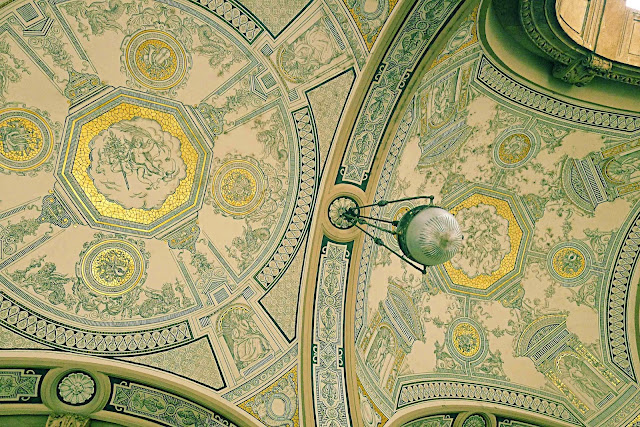


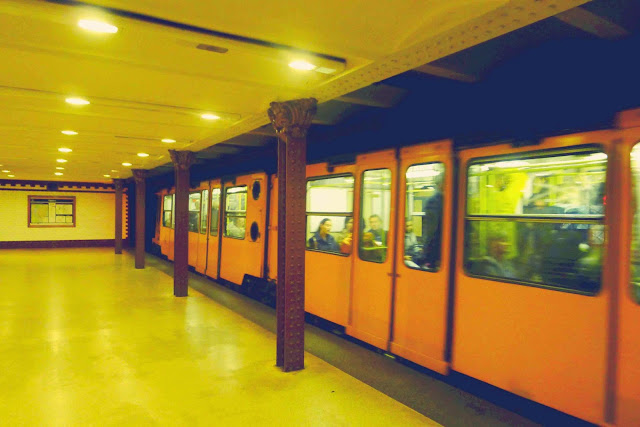




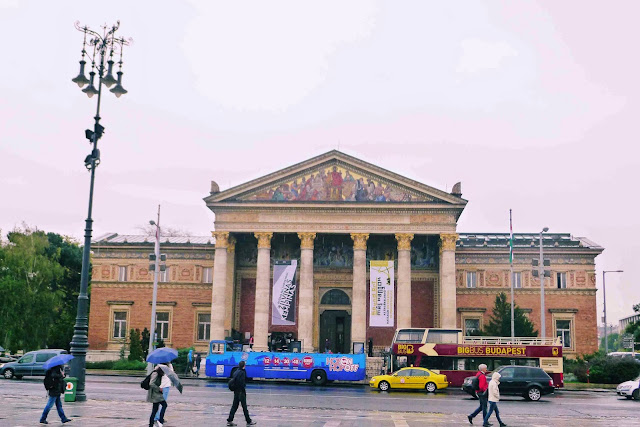

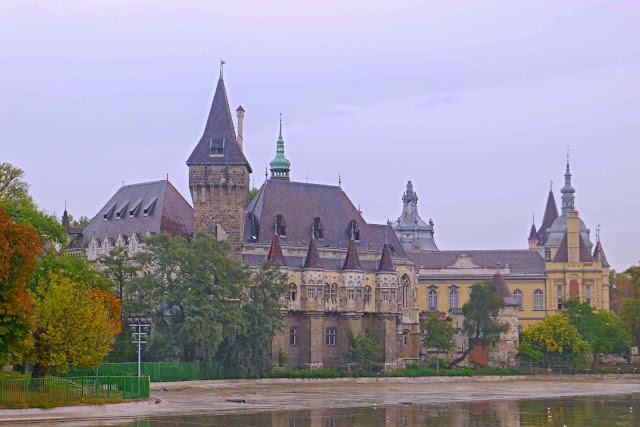




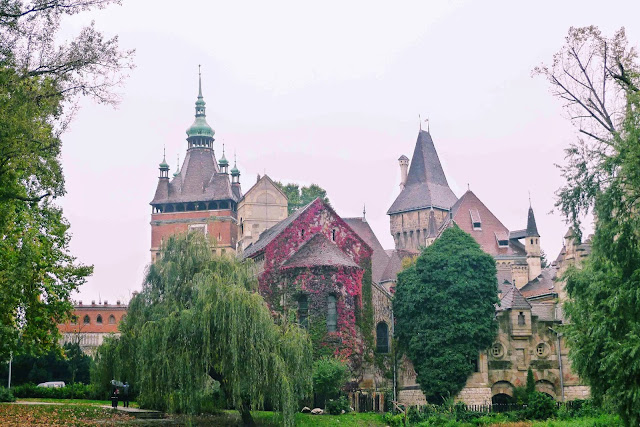

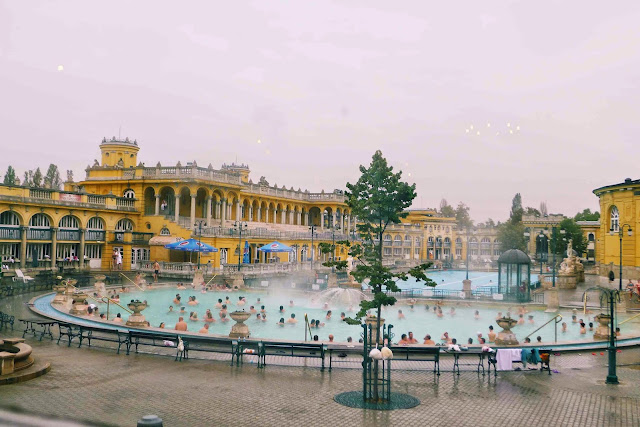
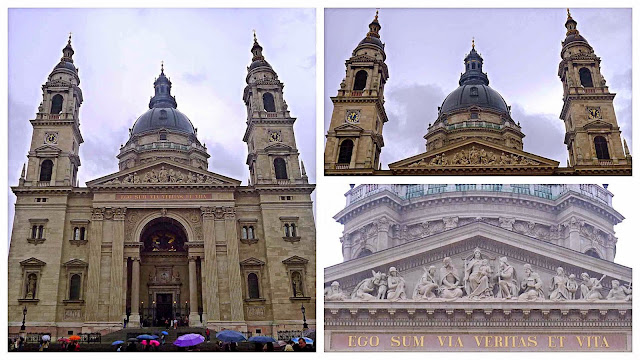

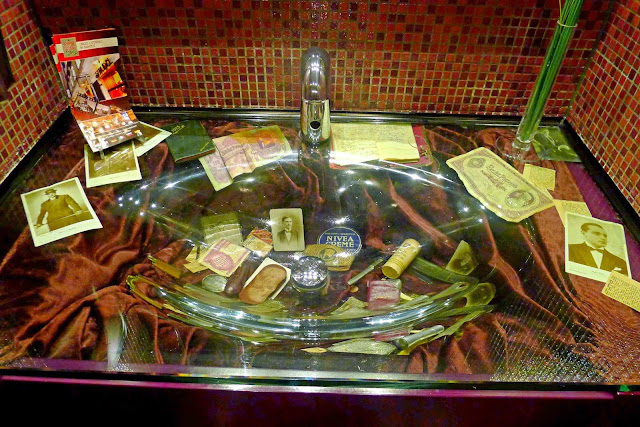



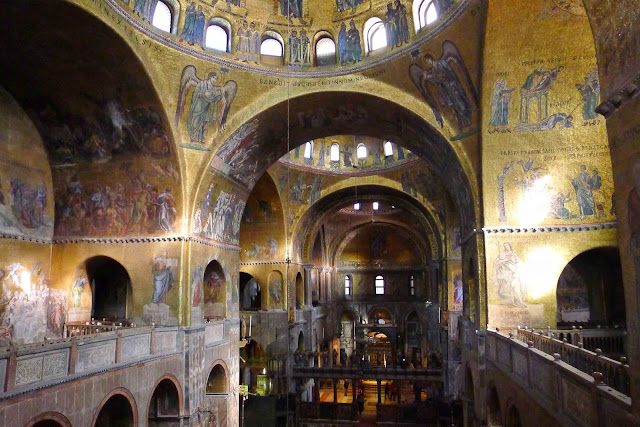


Comments
Post a Comment